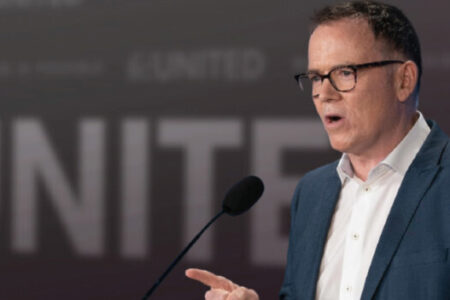COMMENT: Desitiny or just 'one damn thing after another'?
“History is just one damn thing after another.” John Masefield.
“Life is understood backward, but lived forward.”Soren Kirkegaard
This is it, the final column of Arc for the year 2012. This is the week I have often called “dead week” in my mind but not publicly (people would misunderstand!) because of my strange sense of suspended time between Christmas and New Year’s Day. This week is not dead — in the sense of “ inactive” — but it feels like a zone of holding one’s breath until normal work-time begins again after these holidays packed with social and familial obligation and rituals.
My column for Lone Sheep Publishing only began to run in late spring of this year. I look back and I believe I can discern a pattern of common denominators holding this column together. But I will not wax retrospective today. If you, dear reader, are a regular consumer of these musings, you might do your own analysis of what my preoccupations and focus are all about. My column’s title may or may not have justified its application.
Rather, today I must look ahead. Not to make predictions, but to make my claim that my passion for the study of our past, our history, is a worthwhile passion. As a wise person said, “The past is not gone. It is not even past.” There is little that is happening now that did not have its form moulded by what has gone before. What comes next was imprinted in the seed of yesterdays. While form is determined by the past, however, much of the substance of our times is still subject to choices.
I have just been reading C. S. Lewis’ collected essays under the title, Mere Christianity. (1955) He has an interesting insight about human living-in-time and other ways of being. Linear time is the only way we know to live, with our need to have before, now, and after, kept in order so we can make sense of living.
Another way of being would perceive all things as existing in the present, and no past/future fracture into duality would structure the consciousness of beings with non-temporal perception. In that perspective, whatever seems to be in our future has already happened. “It was written, so shall it be.”
Kurt Vonnegut’s science fiction novels such as Sirens of Titan imagined a species called Tralfalmadorians who saw all things in a life as simultaneous, and who taught humans how to send one’s consciousness both “back” and “ahead” along one’s span of mortal life, toward birth or toward death, and all moments along that continuum were as panes of glass side by side. Thus, time was like space, and one could be anywhere along a path, and there was no urge to alter one dot in a lifeline, as it existed as surely as a milestone must be where it is on a road. You think you can change the next scene, but you truly cannot.
Which brings us to free choice. “Be the change you want to see” is stirring rhetoric, yet not a step-by-step guide to action. Lewis was concerned about the theological dogma of human free will, the sense humans have that they can choose between courses of action, and some lead to God and others away. One does not have to be a Christian to appreciate the importance of having a personal perspective on freedom.
This column has said a lot, maybe too much, about my sense of living on a threshold, in an era when an accelerating alteration, transformation, restructuring, and/or upending of the human prospect on planet earth is at hand. I have studied history professionally all my adult life. My summary of what it “means” to be human has changed. My perspective today is, material mortal life demands that we try to make our circumstances better by bettering others’ too. We will likely fail. Most efforts to do so, have: look around.
A tiny destined minority are the historical figures who had the gift of knowing the precise place, the exact moment, where and where to insert their insignificant material and physical effort to make a change. They had all the stars aligned to make vast, extending consequences fall like dominoes. Alexander the Great is one of the outstanding examples of that – but only in a gross, materialist and political/economic form.
Humanity’s spiritual giants have had severe obstacles in history, trying to change behavior and minds for the better. Buddha, Jesus, Lao Tzu: they did not transform our essence, the raw material of humanity. At best they changed cultural materials. Because natural human behaviorisms never fundamentally changed, we brought our planet to a stupendous threshold of destruction/rebirthing – how I see this period of history for the next century.
I still argue that my sense of “The Shift” is based on cogent observation of both the externals and the internals of human being, in this phenomenon we call time. And I hold to the view that what I do is not without meaning and not without significance for the future humans are shaping for themselves.
Humans are not constituted to be perfectible. That dream of the West since our “Enlightenment” era must be laid to rest, but that does not endorse a nihilistic, do-no-political-act, try-no-improvement, philosophy.
George Eliot in Middlemarch wrote a nice turn of phrase for those of us, like me and you, who do not shake the world with Napoleonic tread, but do have an impact. We are living “unhistoric lives” and our tombs will be “unvisited” – yet the world gets better or worse by each person’s contribution to the whole. As the ancient rabbi said, you are not promised that you will leave the world better but you cannot refuse the part in that great work that comes your way.
On the evening of the Solstice, sarcastically called the “Mayan apocalypse” by materialists, I was with friends, and I read out Yeats’ poem ending with these words – “What rough beast shambles toward Bethlehem to be born?” — Words filled with a weighty sense that what was to come in the future for Yeats and his world would be full of significance and revelation. He wrote that in 1919.
The shape of our immediate future has already been laid into the structure of systems that humans have collectively erected over the past few generations, since the time of Yeats. Materialism in our sciences and our capitalist economies has to a large extent laid a trench before us that we will not jump out of by merely wishing. Actions now are crucial. Crisis will follow crisis. How will you help others during this era?
Good thoughts, positive vibes, prayer and meditation, are not without effect – but they do not alter the material world. They don’t. The immaterial energies of love alter you inside your mind and spirit, so that what you do outwardly will have a much better chance of being compassionate than egotistic.
But we humans exist in material for this time, and in material we must act. Being “spiritual” and “sending love” into the ether, but not acting in the world of matter for the good of others, seems to me an oxymoronic formula.
One has flesh, one is incarnate, and one cannot escape the karmic law that what is done in matter by your body must have consequence for one’s immaterial, non-temporal spark. (“soul”?) While poor suffering humanity, and our dear abused planet, stumble forward, find your place to act.
Conundrum
by Charles H. Jeanes, 2011
I dreamed. I witnessed. I record
A vision within, a learning stored.
A mountain mass, dark, broad, and high —
Rock and stone, ice, wind, and sky.
A voice despairing spoke to me
The meaning of the fearsome scene.
“The mountain is human, a mystery.
All human problems, all human history.
Towering here over stony plains —
Injustice, war, destruction, pain.”
I felt a weight upon me fall.
What is one person, so weak, so small?
To think a life might own some mission,
A legacy for good in the human condition.
How could tiny I make change,
Leave any mark on the mountain range?
To believe I possessed any useful tool
Seemed merely the wish of a hopeful fool.
Revolutionary destiny was my conceit.
My weapon a stick, found there at my feet.
“This is your instrument, now be important.”
Said the voice, “Go move the mountain.”
Those were the last words I heard spoken,
Standing alone, beaten, broken.
The voice departed, then there was light,
Silver thread across the night.
From the mountain root through darkness black
I followed a lucid upward track.
I knew my purpose and intent,
To the good of humanity this way was bent.
And as I walked the path I chanted:
“Reveal, where ought my tool be planted?
“Reveal to me, on this mountain strange,
That perfect point to start massive change.”
Alas, the knowledge was denied.
No earthquake swelled, although I tried.
My wooden pick to splinters worn,
Fingers bleeding, muscles torn.
No change did I see from all my labours,
Exhausted, bewildered, I tasted failure.
I looked for others among the stones —
With help there was hope but not alone.
Here at wit’s end I heard my heart,
With bright certainty I knew where to start.
Into the mountain slid my tool of wood —
In a tiny fracture, and I knew I’d done good.
A pebble moved, a stone, a boulder —
Then an avalanche broke the mountain’s shoulder.
A joke : I had altered humanity’s fate.
Future scriptures would call me “Great.”
_________
Who is a “giant”?
Who dies unremarked?
Until future is past
All is hidden in dark.
But each human spirit
Born to blood and bone
Is no less a worker
Scratching in stone.
What a strange accident,
To be an earth shaker.
Humankind worships
The history makers.
There stands that Mountain.
What’s to be done?
Humanity staggers
And walks and runs.
You and I and
We and they
Stones and slivers
To end of days.
Charles Jeanes is a Nelson-based writer. The previous edition of Arc of the Cognizant can be found here.






















